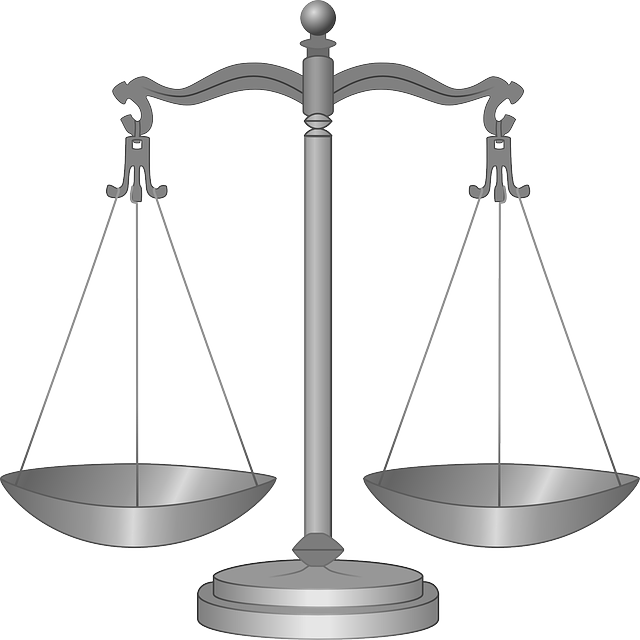Antitrust laws protect small businesses from monopolies and unfair competition, fostering growth. Criminal defense attorneys specializing in antitrust cases help clients navigate these laws, especially in high-stakes scenarios. These attorneys, despite market challenges, play a vital role in ensuring fair legal representation for small businesses, often facing complex investigations alongside large corporations. Understanding the nuances of antitrust regulations is crucial for crafting effective defenses and promoting economic prosperity.
“Unraveling the intricate world of criminal defense, this article sheds light on a critical aspect often overlooked: the impact of antitrust laws on small businesses. In today’s competitive landscape, understanding these regulations is paramount for entrepreneurial survival. We explore how antitrust protections can both benefit and burden businesses, delving into common challenges faced by startups and small enterprises. From market forces to legal strategies, this guide equips readers with knowledge to navigate complex situations, ensuring their enterprise thrives in a regulated environment.”
- Understanding Antitrust Laws: Protections for Businesses
- Small Business Challenges: Competition and Market Forces
- Legal Implications: When Antitrust Violations Arise
- Strategies for Defense: Protecting Your Enterprise
- Navigating Legal Complexities: Seeking Expert Guidance
Understanding Antitrust Laws: Protections for Businesses
Antitrust laws are a critical component of business protection, particularly for small enterprises navigating high-stakes legal landscapes. These laws, designed to foster fair competition and prevent monopolistic practices, have a profound impact on how businesses operate and interact with one another. By understanding antitrust regulations, small businesses can safeguard their interests and ensure sustainable growth.
In the realm of criminal defense, where general attorneys often represent clients in various legal scenarios, recognizing potential antitrust violations is essential. The impact of these laws extends beyond large corporations; they protect small businesses from anti-competitive behaviors, ensuring a level playing field for all participants in the market. This knowledge enables attorneys to offer robust strategies and protections tailored to their clients’ unique needs, especially when dealing with high-stakes cases.
Small Business Challenges: Competition and Market Forces
Small Business owners often face a unique set of challenges when it comes to legal representation due to market forces and competition. In a crowded legal landscape, Criminal Defense Attorneys must navigate not only the complexities of their clients’ cases but also the impact of antitrust laws on small businesses. These laws, designed to prevent monopolies and promote fair competition, can significantly influence how law firms operate and interact with one another.
While the ultimate goal for any business is to secure a complete dismissal of all charges or avoid indictment at all stages of the investigative and enforcement process, small practices might struggle to compete with larger firms that have substantial resources. This dynamic can affect accessibility to quality legal defense, particularly in regions where there’s limited representation. Understanding the nuances of antitrust regulations becomes crucial for Criminal Defense Attorneys to ensure they provide the best possible service without compromising their business sustainability.
Legal Implications: When Antitrust Violations Arise
When criminal defense attorneys represent clients facing antitrust charges, they navigate complex legal landscapes that can significantly impact their cases. Antitrust violations, such as price-fixing or market allocation, carry severe penalties and can have a profound effect on both corporate and individual clients. Understanding the nuances of these laws is crucial for crafting effective defenses, especially in high-stakes cases where winning challenging defense verdicts is paramount.
The Impact of Antitrust Laws on Small Businesses is a significant consideration. While large corporations often serve as primary targets, small businesses can also find themselves entangled in antitrust investigations. Attorneys must be adept at analyzing the specific circumstances to build robust defenses, ensuring justice for all parties while protecting their clients’ interests in a competitive marketplace.
Strategies for Defense: Protecting Your Enterprise
In the realm of criminal defense, particularly for businesses facing antitrust allegations, crafting a robust strategy is paramount. Attorneys must navigate complex legal landscapes to protect their clients’ interests and ensure a winning challenging defense verdict. By understanding the intricate web of antitrust laws, lawyers can develop tailored strategies that safeguard small businesses from unfair prosecution. The Impact of Antitrust Laws on Small Businesses is a significant consideration, as these regulations can be labyrinthine, often requiring expert interpretation.
A skilled criminal defense attorney will delve into the specifics of each case, exploring options beyond mere compliance. They might leverage an unprecedented track record of successful defenses to build a compelling argument for their clients. By engaging with philanthropic and political communities, these attorneys also foster an environment where businesses can thrive, free from unreasonable legal constraints. Such an approach ensures that justice is served while protecting the entrepreneurial spirit, ultimately contributing to a robust economic landscape.
Navigating Legal Complexities: Seeking Expert Guidance
Navigating Legal Complexities requires expert guidance, especially when dealing with intricate matters such as antitrust laws and their impact on small businesses. Criminal defense attorneys play a pivotal role in guiding clients through these treacherous legal waters. They possess a deep understanding of the dynamic interplay between antitrust regulations and various business sectors, enabling them to offer tailored strategies for success.
By leveraging their expertise, these attorneys help businesses mitigate risks, avoid costly legal pitfalls, and achieve extraordinary results in both out-of-court settlements and jury trials across the country. Their skill lies in interpreting complex laws and translating them into actionable plans, ensuring clients’ rights are protected while navigating the often labyrinthine landscape of antitrust litigation.
The impact of antitrust laws on small businesses is profound, with market forces and competition presenting unique challenges. Understanding these legal complexities is essential for enterprise protection. By recognizing when antitrust violations may arise and employing strategic defenses, business owners can safeguard their operations and navigate the legal landscape effectively. Seeking expert guidance from criminal defense attorneys specializing in antitrust law is a crucial step to ensure compliance and mitigate potential risks.






